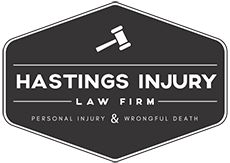The Florida Supreme Court last week ruled that “an insured motorist is entitled to a determination of liability and binding damages in an underinsured (“UM”) motorist suit before filing a bad faith claim against the insurer” and that this determination is binding on the bad faith suit (Law360). Why is this such great news? It saves time and money, and may guarantee a better recovery in cases where you are injured by an “underinsured motorist.”
Under Florida law, an underinsured motorist is a person who does not have enough insurance at their disposal to pay for all the damage they caused. They may be below the required limits for PIP, etc., that are set by statute or underneath what is needed to pay for your injuries. UM insurance, insurance that you pay for which includes under- and un-insured drivers, will provide that extra amount to take care of your injuries and property damage after an accident.
However, in some cases, your insurance company may refuse to pay out your UM insurance money, which is when you may decide to bring suit. In previous years, Florida law required that, in this suit, you would have to demand your UM insurance money from your insurer. If you won the first trial, and the jury awarded damage beyond the limits of your UM insurance, you would have to amend and file another suit to get damages for bad faith, which may be less than what the original jury awarded you.
This old system, as the Florida Supreme Court stated, allowed insurers to “take a second bite at the apple” and prevent you from getting the full amount of the jury verdict the first time. Now, with Fridman, plaintiffs in UM bad faith cases will be able to lock in the amount of the jury verdict below. If the plaintiff succeeds in the first case, the second case will only be about whether the UM insurer acted in bad faith, saving time and money for litigants and providing a better chance of getting whole again.

